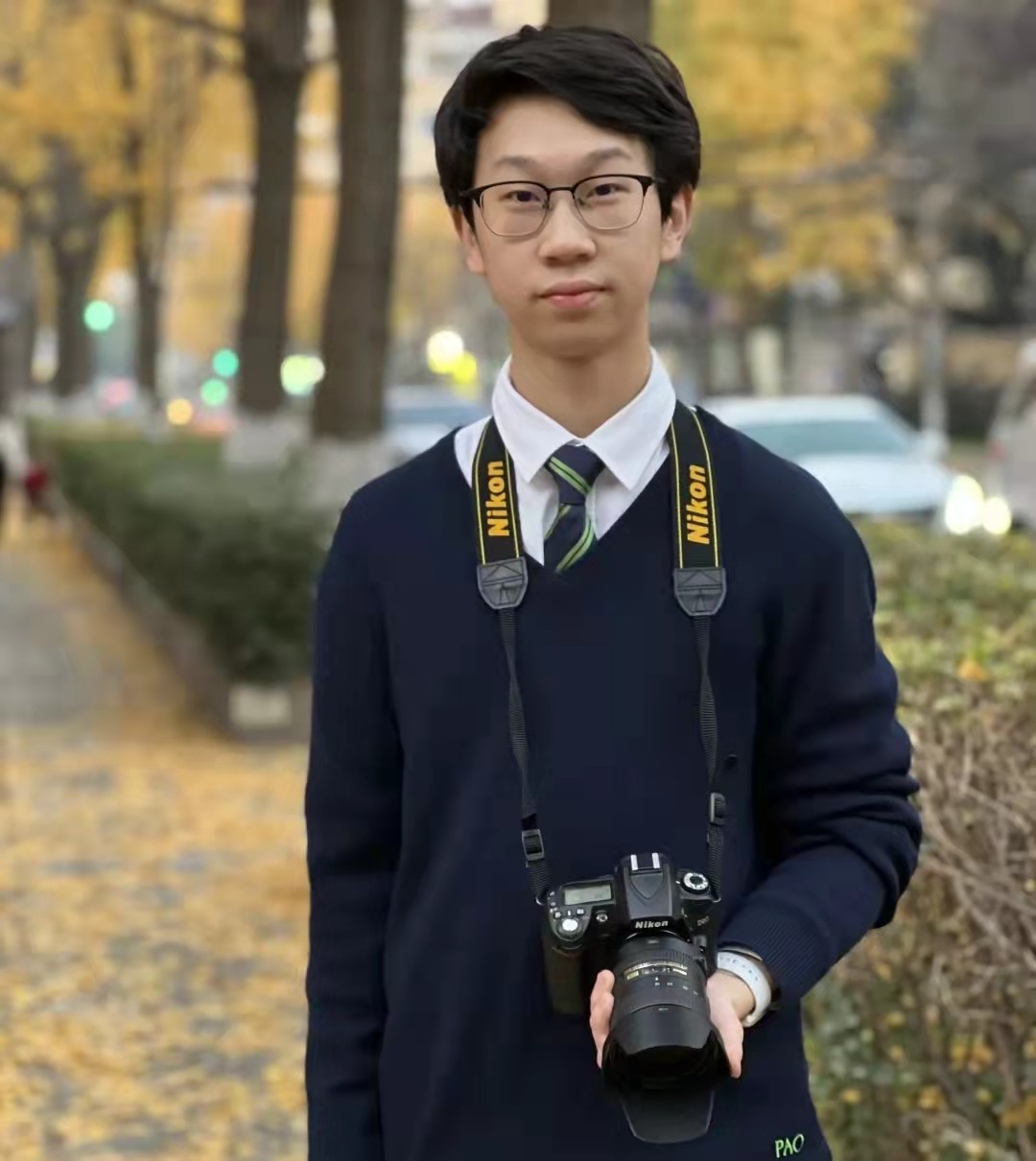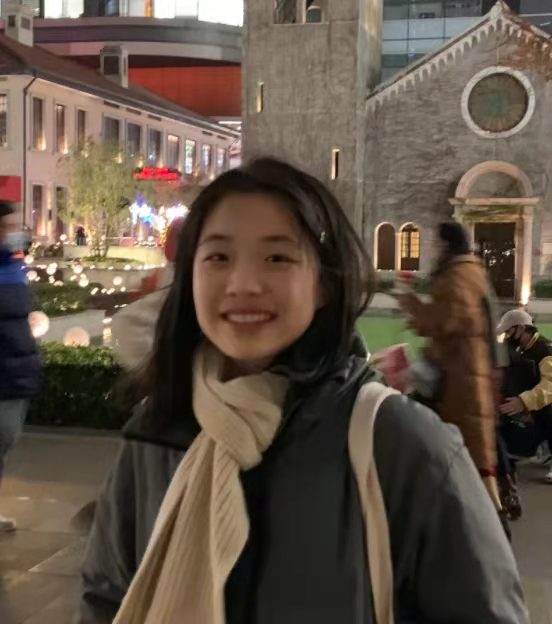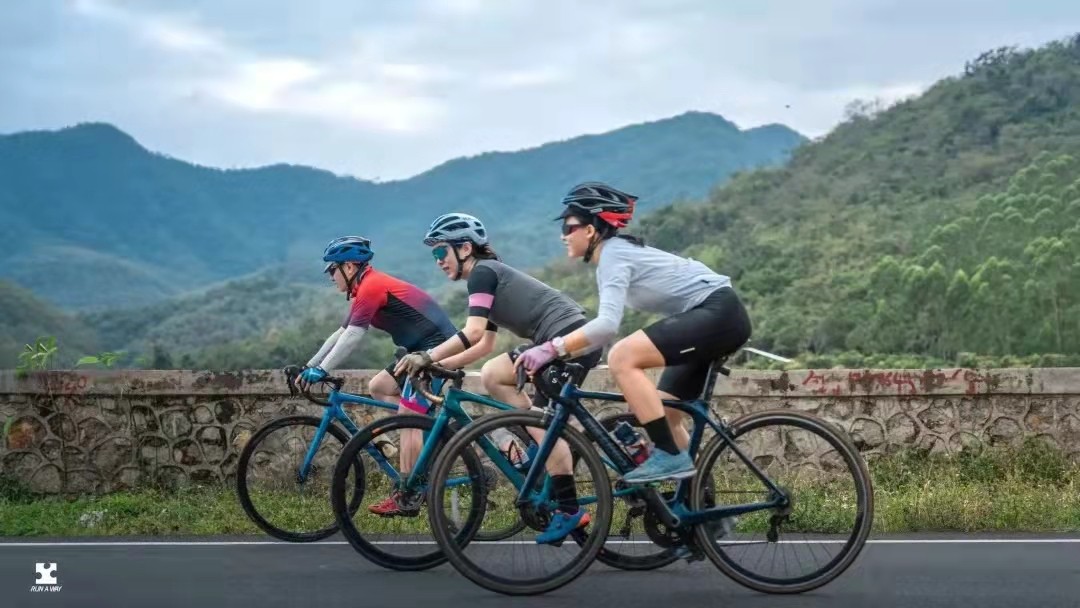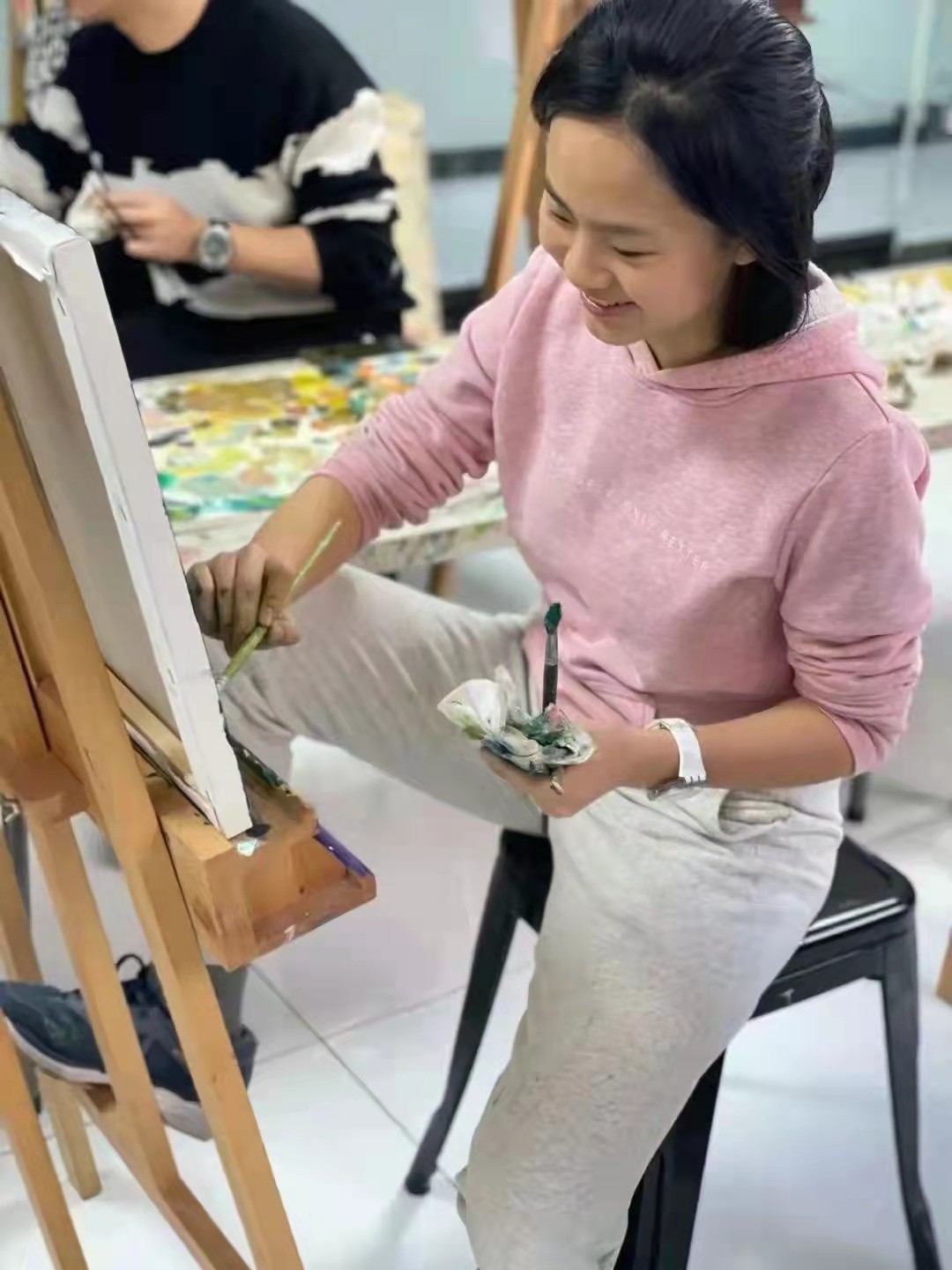At Pao School, learning by trial and error is well accepted. It's like being part of a big family, so I feel secure and have the confidence to express myself.
— Y10 Sophia
At Pao School, students are encouraged to be forward thinkers and develop their skills of innovation. At the core of these goals is science education, through which students begin to develop self-confidence, dedication, intellectual curiosity, and perseverance. The fruits of students’ science learning at Pao School are becoming increasingly apparent, as seen in their excellent results in well-renowned competitions such as the S.-T. Yau High School Science Award and Talented Programme.
The Talented Programme, organised by the China Association for Science and Technology and the Ministry of Education, gives students the chance to work with distinguished professors at universities like Fudan and Tongji. In 2021, Eric was shortlisted for his project in the programme as an Outstanding Student. This year, Year 10 students Elina and Sophie were shortlisted to take part in the 2022 Talented Programme.
The S.-T. Yau High School Science Awards are highly competitive and attract thousands of entries from around the country. Impressively, Year 10 Sophia won a bronze medal in biology and first prize in the Divisional Finals in the 2021 competition.
Learning more about myself at Pao School
In the past year, Eric has been working on a research project entitled "Active Noise Control in Ventilation Ducts Based on LMS Algorithm" with computer science professors and teaching assistants from Fudan University. In this project, Eric is researching how a noise reduction system can improve the functionality of ventilation ducts. This project allowed Eric to gain familiarity with a university’s scientific research process, an invaluable experience for a high school student.

Eric has been interested in computers since Year 7. In his middle school information communication and technology (ICT) class, he learned the basics of computer programming and the Python language. Later, in Years 10 and 11, his interest in computer science deepened as he gained a more comprehensive understanding of computational thinking, theory, and the field’s different areas.
“Computer Science courses at Pao School have broadened my knowledge of the overall discipline,” Eric says. “I have moved from a one-dimensional perspective based only on programming to a fuller understanding of the entire computer science technology field."
Eric has been impressed by the quality of instruction in his science classes at Pao School. One of his most impactful experiences was how, in Year 7, a group experiment went awry in the early stage of the assignment. Eventually, he and his team members downloaded a chemical experiment simulator from the Internet to simulate the experiment. At first, everyone was concerned that this approach would not pass muster. In fact, the science teacher praised the students for their problem-solving skills: They found a different way to complete the experiment under special circumstances. The teacher’s positive reaction was highly beneficial for the children’s confidence. They all realised that they could not give up – they had to complete the experiment – even if they encountered setbacks and difficulties along the way.
Sophie’s research through the Talented Programme focuses on biology. Like Eric, she also feels that the educational approach and environment of Pao School have given her many opportunities for independent study, helping her improve her time management skills. At the same time, in science class, she has learned to seek knowledge proactively. Her learning is also supported by Biology teacher Steven Varty, who encourages students to keep asking questions and explore the science behind events and makes the class fun with his outstanding sense of humour.

Science class at Pao School is interesting in many respects. Not only do teachers provide a lot of positive encouragement to students, but they also take great care in the preparation of lessons and homework. Eric noted that teachers use different methods to encourage students to design and carry out experiments, cultivating their interest in learning. For example, in the individual investigation for the students’ physics assessment, the teacher asks everyone to do a small experiment in their respective field of interest. The whole process it is completely up to the students.- from topic selection to experimental design and process. As a result, the students’ research reflects their unique interests and skills.
Eric has not only boosted his academic understanding of computer science, but also improved his soft skills. Since entering high school, Eric feels that his time management ability has significantly improved. He notes that at Pao School, students usually are free to independently plan their time after class.
“When class is over, you can participate in evening activities held by the school, guest lectures, or practice piano by yourself to prepare a concert performance, or you can return to your dorm and finish your homework,” he says. “Having the freedom to plan our own time helps everyone prepare themselves for life at university, where it is important to be independent and have good time-management skills.”
Developing independence and self-confidence at Pao School
Sophia is grateful for how Pao School has provided her with an exceptional environment in which to learn. "Pao School has taught me so much,” she says. “I can say that the school has had a big impact on my character and how I think.” Her work on mirror neurons won the S.-T. Yau High School Science Award at the end of last year. She feels that her primary school education established a solid foundation for her future studies, as well as the development of her self-confidence and character throughout middle and high school.

Sophia riding with her classmates
Sophia recalls how, in Year 5, the teacher once asked the students to introduce an element of "traditional Chinese culture" in class. She planned to use a Chinese restaurant as an example, and she did extensive research. Yet, due to her lack of presentation experience, her PowerPoint was only plain text and she ended up sticking entirely to the text on the slides when she spoke.
During that presentation, Sophia says she felt “terrible.” However, when she finished her presentation, she was surprised to find that the teacher and her classmates applauded enthusiastically. Such positive support helped the then shy Sophia, who hesitated to raise her hand and ask questions in class and hid behind her mother when she met strangers, gradually become a more gregarious, cheerful and generous person. Sophia said: “At Pao School, it's okay to learn through trial and error. It's like being part of a big family, so I feel secure and have the confidence to express myself. After countless classroom exercises, I became adept at public speaking at school and was able to speak articulately and defend myself confidently in the Yau Award selection process.”
Teachers not only develop everyone's basic scientific thinking literacy, ability to conduct experiments, and practical knowledge of science; they also help students to become self-confident, independent learners. Further, the bevy of co-curriculars and activities on campus give students a chance to fully challenge and express themselves.
—— Y10 Elina
Simplifying the complex with a smile
Sophia’s project for the S.-T. Yau High School Science Award competition focused on mirror neurons. The reason why she chose this topic was that she once exchanged smiles with a stranger on the subway. Curious about she why seemed to subconsciously return the stranger’s smile, she decided to delve into study about mirror neurons. Her research goals are two-fold: one, identify cell clusters to which mirror neurons belong at the genetic level; two, understand the function of mirror neurons at the neural pathway level. Through learning the characteristics of mirror neurons, Sophia will lay a solid foundation for her future research – helping people understand actions and the mechanisms behind empathy and language.
We used a microarray to identify all the genes that are highly expressed in the three brain regions of the mirror neuron system. The results of the microarray identified 10 cell clusters that met the research criteria. Within each cell cluster, the candidate gene with the highest total relative expression was cell cluster 85. Second, to further explore the properties of mirror neurons, we collected all representative neurodegenerative diseases and psychiatric determinants and used the microarray to collect the specific expression of these genes in cell cluster 85. Of these, 6 were found to have a normally distributed expression pattern in cell cluster 85. After analysis and sorting, it was found that Mobis syndrome, autism, and ALS are not only related to mirror neurons, but also have a relationship with each other.
- Sophia Y10

After she prepared the initial draft of her article, she found the style was overly academic, making it difficult for laymen to understand. At this time, she asked her biology teacher, Steven Varty, for help.
"To simplify complex scientific principles and applications, we must start from the perspective of someone who has no professional background in neuroscience,” Mr. Varty says. In Sophia’s view, after incorporating his perspective and opinions into her article, the paper’s overall language and logic became more clear and accessible.
Indeed, this way of “simplifying” learning is also the method that YK Pao School’s science teachers use in the classroom. Sophia shared: "Science teachers can always use simple and easy-to-understand language to teach relatively complex subject matter. This helps to keep students engaged and the active classroom atmosphere stimulates everyone’s curiosity.”
“Pao School gives children plenty of room to think independently and explore their interests, and at the same time is equipped with excellent resources. At Pao School, the emphasis on character education and the blend of Chinese and Western pedagogies are highly beneficial for students’ holistic learning. The virtues that Pao School cultivates in its students are recognisable in every child that studies at the school.”
— Y10 Sophia’s mother